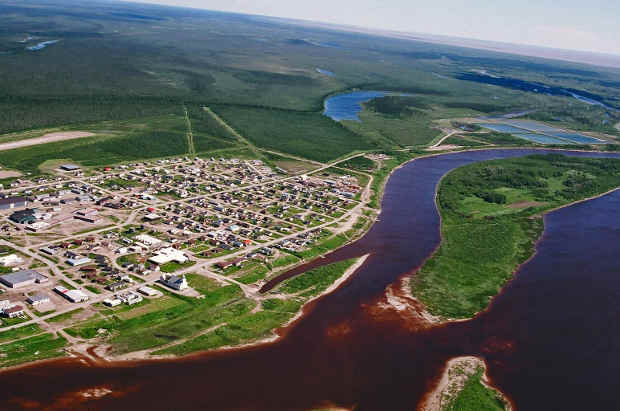ATTAWAPISKAT – The world’s youngest water warrior is adding her voice to those of Chelsea Jane Edwards and Adrian Sutherland to bring attention to the water crisis in First Nations across Canada.
Autumn Peltier will travel to the isolated Cree community of Attawapiskat on the James Bay on Tuesday July 16th to meet with Chelsea and Attawapiskat’s youth council, in efforts to help further awareness of the issue of contaminated water.
ADVOCATING FOR WATER
Autumn Peltier is 14 years old, from Wiikwemkoong Unceded Territory on Manitoulin Island. She is of Odawa/Ojibwe descent and lives a traditional Anishinaabe lifestyle. Autumn is a jingle dress dancer and ceremonial helper to her Elders. She has been travelling around Canada sharing her message with youth about the importance and sacredness of preserving water/Nibi. She believes we all need water to live, or we would not be here. She also believes that someone – everyone – has to advocate for mother earth. https://www.facebook.com/Waterwarrior1/
Chelsea Jane Edwards is a 23-year-old Mushkegowuk Cree from Kattawapiskak First Nation (Attawapiskat). She is a proud mother, youth coordinator, public speaker, and has been an Indigenous Rights Activist for over a decade. Chelsea founded Shannen’s Dream in memory of Shannen Koostachin, a youth education advocate who worked tirelessly to convince the federal government to give First Nations children proper education in safe and appropriate learning environments. https://fncaringsociety.com/shannens-dream
Adrian Sutherland is a singer/songwriter and frontman for roots-rock band Midnight Shine, making contemporary music that gives a glimpse of life in Canada’s Far North. He is a traditional knowledge and language keeper of his Mushkegowuk Cree people of the James Bay, takes part in and often leads ceremonies, is passionate about land-based learning for youth, and a genuine example of someone who lives authentically. Adrian is a father of four, grandfather of three, and hard-working husband, proud of who he is and where he comes from. www.midnightshineonline.com
HOW IT STARTED
It began with a Tweet last week by Catherine McKenna, Canada’s Environment Minister, who posted a photo of a water bottle being filled, stating how clean the tap water was in Ottawa. Around the same time, residents of Attawapiskat were called together for an emergency meeting in their remote northern community, informed that their water is contaminated, and given instruction not to bathe in it, take hot showers, or inhale its steam.
Attawapiskat resident Chelsea Jane Edwards tweeted back: “Must be nice. Maybe consider visiting Attawapiskat, a northern community IN Ontario, and try filling your water bottle here using our tap water? It just causes cancer if using it long term. No biggie. You’ll only be here for a day, at most I bet. You should be fine.”
Attawapiskat resident Adrian Sutherland added his voice to the conversation: “So I hear Ottawa’s real proud of having the cleanest drinking water in the world! Meanwhile, in Attawapiskat, the water is contaminated.” Along with his message, Adrian posted a striking image of himself in a mask holding a water bottle, signifying the contaminated water situation.
Autumn Peltier demonstrated immediate support on her Facebook page, stating: “Still broken promises for my people, the people in our Indigenous communities in Canada or North America for that fact should not have to experience non-drinkable water!”
Since then, things have been blowing up across social platforms, with media outlets across the country picking up the story. It is turning into a growing call from Canadians across the country for clean water for First Nations, with one common hashtag in place to unite the issue: #FIRSTWATER
WATER CRISIS REALITY ACROSS CANADA
In Canada, according to Government of Canada statistics, there are currently 58 long-term drinking water advisories affecting public systems. The same web page also states it can take “three to four years” on average to complete a new water treatment system on a First Nation. https://www.sac-isc.gc.ca/eng/1506514143353/1533317130660







